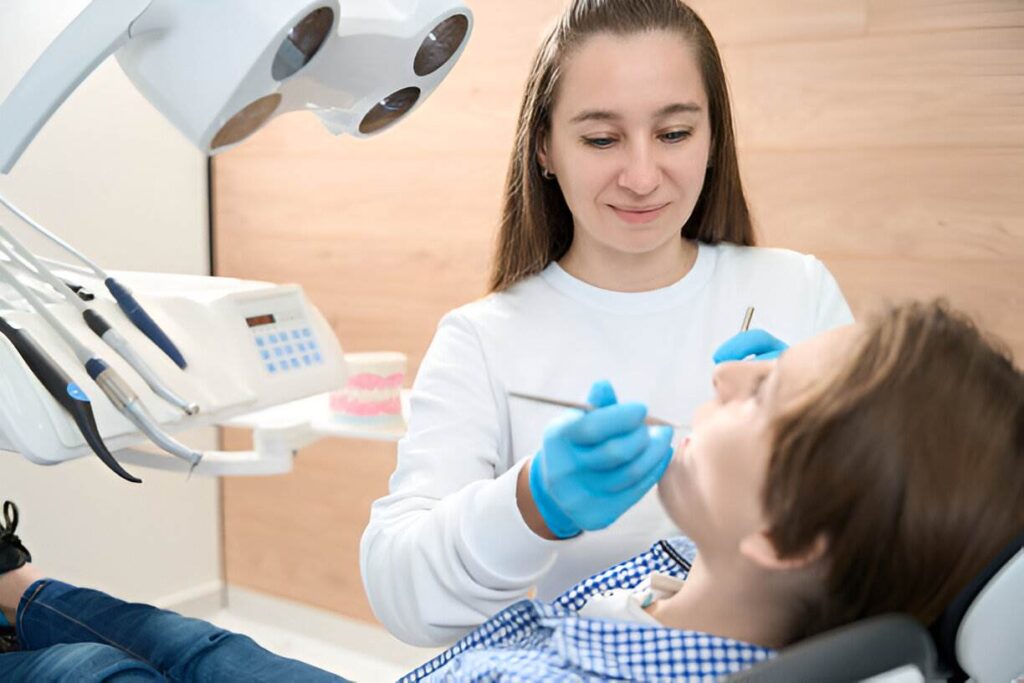Key Takeaways
- Preparing children for dental visits can ease their anxiety.
- Interactive tools and storytelling help demystify dental procedures.
- Role-playing at home can make children more comfortable at the dentist.
- Reward systems can positively reinforce good behavior.
Table of Contents
- Importance of Dental Visits for Children
- Preparing Your Child for a Dental Visit
- Tools to Ease Dental Anxiety
- Role-Playing at Home
- Reward Systems for Good Behavior
- Interactive Storytelling
- Positive Reinforcement Techniques
- Encouraging Regular Dental Care
The Importance of Dental Visits for Children
Dental visits are crucial for the overall health of children. Whether it’s a routine check-up or treating a specific issue, visiting a pediatric dentist Mesquite, TX, can significantly impact keeping your child’s mouth healthy. According to research from the CDC, early dental care can prevent many oral health issues affecting overall well-being, including speech development and even self-esteem. Instilling good dental habits early on can also pave the way for lifelong oral health, transforming what might be a dreaded chore into a regular part of their health routine.
Preparing Your Child for a Dental Visit
Preparation is vital when it comes to reducing anxiety around a dental visit. One way to prepare your child is by taking them to visit the dental office beforehand. It will familiarize them with the environment, making it less intimidating. Discussing what will happen during the visit helps turn a potentially stressful experience into a manageable one. Break down the dental visit into simple steps your child can easily understand. For instance, explain that the dentist will “count their teeth” and “make sure they are shiny and clean.” Using positive, child-friendly language can help alleviate fear and build trust. Additionally, addressing any questions or concerns they might have beforehand can further reduce anxiety, allowing them to feel more comfortable and prepared.
Tools to Ease Dental Anxiety
Several tools can help ease dental anxiety in children. Kid-friendly videos and books about dental visits can be very effective. According to recommendations from the ADA, these resources often feature friendly characters and engaging stories that make learning about dental care fun. For example, watching a cartoon where the main character bravely goes to the dentist can make your child feel less alone in their experience. Additionally, some apps use interactive games to teach children about dental hygiene, turning what might otherwise be a nervous experience into an engaging and educational. These preparatory tools help to demystify the process, presenting it in a fun and informative way.
Role-Playing at Home
Role-playing is another effective way to acclimate children to visiting the dentist. Parents can play dentist and patient with their children using a toy dental kit. This activity makes dental hygiene fun and demystifies the dental procedures they will encounter. During these role-playing sessions, you can re-enact parts of the dental visit, such as “counting teeth” and “brushing teeth.” It lets the child know what will happen, making the visit less intimidating. Furthermore, role-playing enables the child to express fears or concerns in a safe and controlled environment, which can be addressed proactively.
Reward Systems for Good Behavior
Incentive programs can effectively encourage positive conduct. Small rewards for sitting still and following the dentist’s instructions can motivate children to behave during their visit. Reward systems can include stickers, toy prizes, or extra playtime. For instance, you could create a sticker chart in which your child receives a sticker for every successful dental appointment or for demonstrating good oral care habits at home. Once a certain number of stickers are collected, they could earn a larger reward. Positive reinforcement helps associate dental visits with positive experiences, making them less frightening. The key is consistency and ensuring that the rewards are appropriate and meaningful to the child.
Interactive Storytelling
Interactive storytelling is a creative approach to preparing children for a trip to the dentist. Creating a story where they are the hero who bravely visits the dentist can make the real-life experience seem like an adventure. You can use their favorite characters or invent new ones for this purpose. Encourage your child to participate in the storytelling to engage their imagination. For instance, you can read a story about a brave little character who wins a prize for excellent dental hygiene and then relate it to your child’s upcoming visit. Interactive storytelling helps normalize the experience and places the child in a positive, empowered role, making them more likely to approach the dental visit with confidence.
Positive Reinforcement Techniques
Positive reinforcement methods, such as commending your child for bravery and cooperation, can significantly decrease their anxiety. Positive words can have a profound impact, especially from trusted adults. Make sure to highlight their courage before, during, and after the visit to build their confidence. For example, saying phrases like “You are so brave!” or “I am proud of you for being such a good patient!” can boost their self-esteem and make them feel valued. By consistently providing positive feedback, you reinforce the idea that dental visits are not something to be feared but are an opportunity to receive praise and positive attention.
Encouraging Regular Dental Care
Encouraging regular dental care at home can also make dental visits less daunting. Educate your child about the significance of regular brushing and flossing. Parents can promote a positive attitude towards dental health by incorporating oral hygiene into their children’s daily routine in an enjoyable way. Choose a brightly colored or themed toothbrush that excites your child and makes brushing and flossing a daily ritual to look forward to. You can also use songs or timers to ensure they brush for two minutes. The better the child’s dental hygiene at home, the fewer issues will be encountered during the dental visit, making the entire process much smoother and less stressful.


